Future of judicial sales
 |
| Anare R. Tuilevuka, judge of High Court of the Republic of Fiji, delivers a speech on Fiji's recognition of other countries' judgments on the basis of mutual beneficial cooperation at a seminar themed on "the Future of Judicial Sales" at the World Enforcement Conference on Jan 22. [Photo/court.gov.cn] |
 |
| Janek Pool, president of the National Chamber of Judicial Officers and Trustees in Bankruptcy of the Republic of Estonia, outlines asset sales in Estonia, at a seminar themed on "the Future of Judicial Sales" at the World Enforcement Conference on Jan 22. He explains that property is often distrained by the bailiffs. It can be auctioned if there is something that the bailiff can't handle. An electronic way would be prioritize in case of auction. The property is sometimes sold to people in special fields. All trading, including the transfer of stock shares, is recorded in a central database. In addition, he said that Estonia passed bankruptcy laws in 2016 and all affairs of judicial sales and bankruptcy are conducted online, which decreased the enforcement period by 44 percent. [Photo/court.gov.cn] |
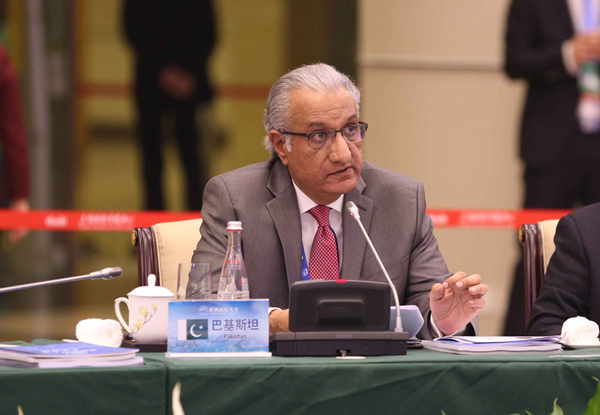 |
| Ijaz-ul-AHSAN, justice of the Supreme Court of the Islamic Republic of Pakistan, shares Pakistan's Constitution history, the judicial structure and the brief proceedings of enforcement on closing down, transfer, sale or auction of personal property and real property at a "the Future of Judicial Sales" seminar at the World Enforcement Conference on Jan 22. According to him, special courts and laws have also been established and issued to deal with disputes related to the banking industry, enterprise business, debt collection and commercial disputes. [Photo/court.gov.cn] |
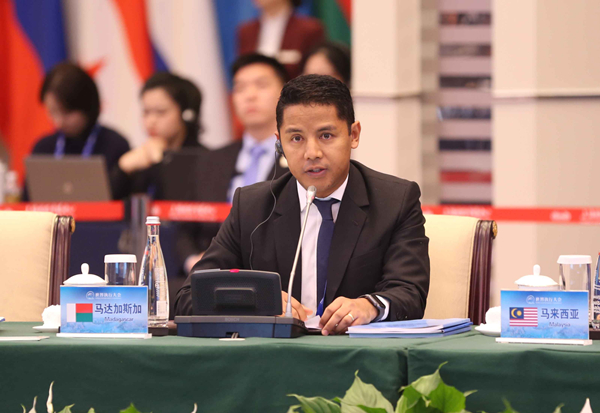 |
| Randrianarimanana Tsantatiana Salama, secretary general of the Ministry of Justice of the Republic of Madagascar, gives a brief introduction of Madagascar's judicial system and shares his country’s experience in informatization of enforcement at the seminar themed on "the Future of Judicial Sales" at the World Enforcement Conference on Jan 22. He explains that "coercive auction" in Madagascar only refers to auctioning debtors' personal property and real property to satisfy his or her debts. Finally, he expressed his optimism about Madagascar's judicial reform. [Photo/cpurt.gov.cn] |
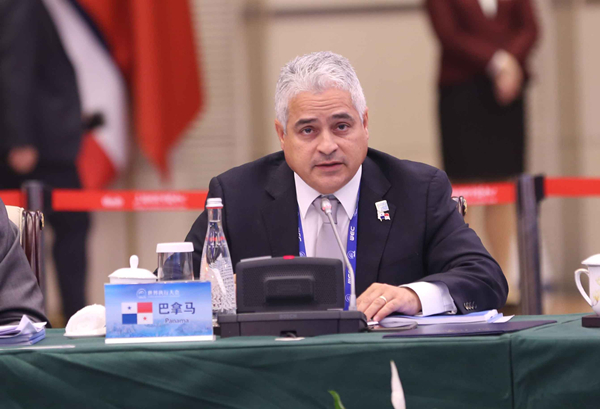 |
| Hernan De León Batista, president of the Supreme Court of Justice of the Republic of Panama, delivers a speech describing the scope, functions, types and targets of judicial sales in Panama, at a seminar themed on "the Future of Judicial Sales" at the World Enforcement Conference on Jan 22. He also explained the construction of a modern judicial system in the country, which will improve supervision and assessment capacity and raise efficiency and credibility of the judicial departments through the engagement of judges, technicians, administrative staff and the public with the country's judicial system. He also expressed his hope of learning from the conference to improve Panama's judicial sales efficiency. [Photo/court.gov.cn] |
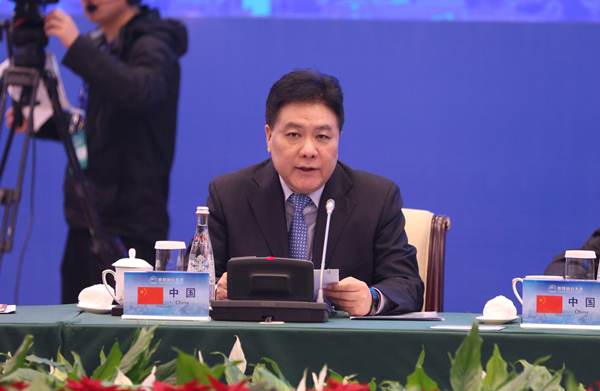 |
| Liu Guixiang, justice and full-time member of the Adjudication Committee of the Supreme People's Court of the People's Republic of China, introduces the development of property liquidation in the judicial field in China at the seminar themed on "the Future of Judicial Sales" at the World Enforcement Conference on Jan 22. He outlined the judicial interpretation and proceedings of China’s traditional mode of property liquidation and pointed out the disadvantages of the mode, explaining that an online mode widen the reach of the sales, makes it easier to participate and lowers auction costs. Liu also mentioned the challenges in the property liquidation proceedings such as determination of the starting price. [Photo/court.gov.cn] |
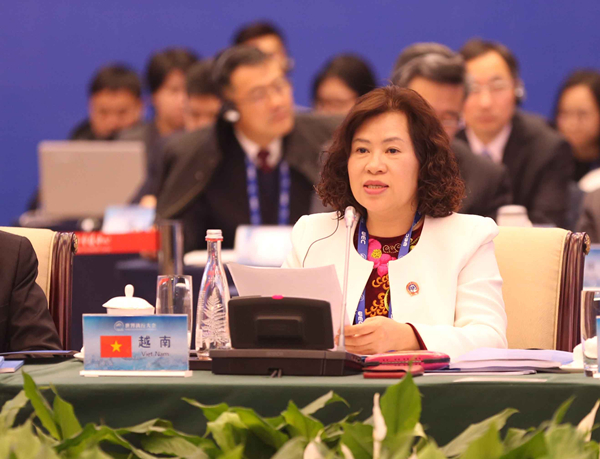 |
| Nguyen Thuy Hien, deputy chief justice of the Supreme People's Court of the Socialist Republic of Vietnam, delivers a speech on judgment enforcement in Vietnam at a seminar themed on "the Future of Judicial Sales" at the World Enforcement Conference on Jan 22. She gave a brief introduction to the enforcement laws and regulations of the country, including its proceedings, scope and efficiency. She says courts in Vietnam have concluded 2,846 judicial sales in 2018 and expressed her willingness to learn from China's experience in online sales to attract more bidders, shorten the auction period and gain a higher trading volume. [Photo/court.gov.cn] |







